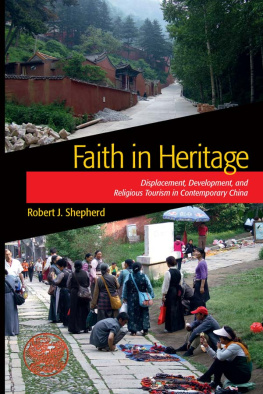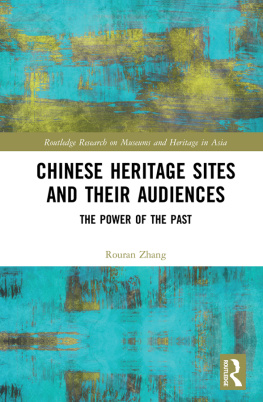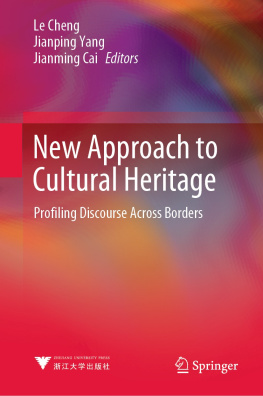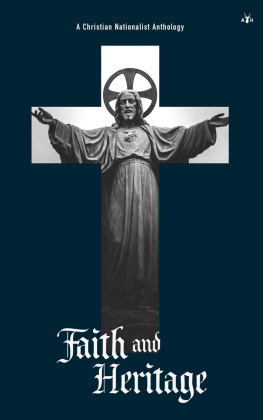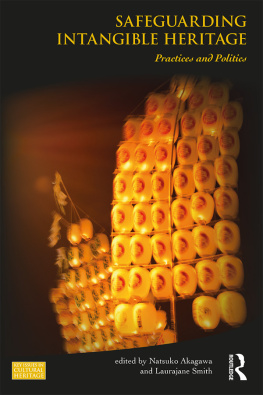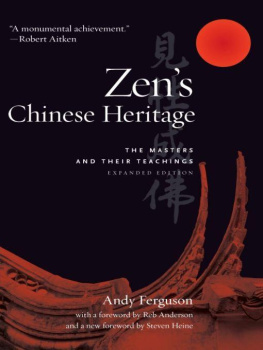FAITH IN HERITAGE
HERITAGE, TOURISM, AND COMMUNITY
Series Editor: Helaine Silverman
University of Illinois at Urbana-Champaign
Heritage, Tourism, and Community is an innovative new book series that seeks to address these interconnected issues from multidisciplinary and interdisciplinary perspectives. Manuscripts are sought that address heritage and tourism and their relationships to local community, economic development, regional ecology, heritage conservation and preservation, and related indigenous, regional, and national political and cultural issues. Manuscripts, proposals, and letters of inquiry should be submitted to helaine@uiuc.edu
The Tourists Gaze, The Cretans Glance: Archaeology and Tourism on a Greek Island, Philip Duke
Coach Fellas: Heritage and Tourism in Ireland, Kelli Ann Costa
Inconvenient Heritage: Erasure and Global Tourism in Luang Prabang, Lynne Dearborn & John C. Stallmeyer
Heritage that Hurts: Tourists in the Memoryscapes of September 11, Joy Sather-Wagstaff
Speaking for the Enslaved: Heritage Interpretation at Antebellum Plantation Sites, Antoinette T. Jackson
Faith in Heritage: Displacement, Development, and Religious Tourism in Contemporary China, Robert J. Shepherd
FAITH IN HERITAGE
Displacement, Development, and Religious Tourism in Contemporary China
Robert J. Shepherd
First published 2013 by Left Coast Press, Inc.
Published 2016 by Routledge
2 Park Square, Milton Park, Abingdon, Oxon OX14 4RN
711 Third Avenue, New York, NY 10017, USA
Routledge is an imprint of the Taylor & Francis Group, an informa business
Copyright 2013 Taylor & Francis
All rights reserved. No part of this book may be reprinted or reproduced or utilised in any form or by any electronic, mechanical, or other means, now known or hereafter invented, including photocopying and recording, or in any information storage or retrieval system, without permission in writing from the publishers.
Notice:
Product or corporate names may be trademarks or registered trademarks, and are used only for identification and explanation without intent to infringe.
Library of Congress Cataloging-in-Publication Data:
Shepherd, Robert J., 1958
Faith in heritage : displacement, development, and religious tourism in contemporary China/Robert J. Shepherd.
p. cm. (Heritage, tourism, and community; vol. 6.)
Includes bibliographical references and index.
ISBN 978-1-61132-073-2 (hardback : alk. paper) ISBN 978-1-61132-074-9
pbk. : alk. paper) ISBN 978-1-61132-075-6 (institutional eBook) ISBN 978-1-61132-655-0 (consumer eBook)
1. TourismReligious aspectsChinaWutai Mountains. 2. Tourism Religious aspectsBuddhism. 3. Buddhist pilgrims and pilgrimagesChina Wutai Mountains. 4. Heritage tourismChinaWutai Mountains. 5. World heritage areasChinaWutai Mountains. 6. Wutai Mountains (China)Religious life and customs. 7. Wutai Mountains (China)Social life and customs. I. Title.
G155.C55S574 2012
915.117dc23
2012023806
ISBN 978-1-61132-073-2 hardback
ISBN 978-1-61132-074-9 paperback
CONTENTS
_______________
Icon (above): Signboard at the Mount Wutai National Park Visitor Center construction site, 2012. It promotes Mount Wutai as an international destination famed for its material culture, natural scenery, and leisure activities. Yet the areas real fame is as a Buddhist pilgrimage site.
This book is dedicated to my parents, John and Corrine Shepherd.
They raised eight children with a lot of hard work and smiles and always have encouraged us to be the best we can, whatever our choices.
The way they have lived has shown us how to be better people.
Thank you.
And in loving memory of Elli Dumont, I raise my glass.
L ike most field work practitioners, I have struggled with the twin peaks of life as an academicfamily and work obligations. Once gainfully employed, a settled life leads to family ties and work responsibilities, making it difficult for an anthropologist to spend a year in the field. I have been very fortunate in both regards. First, my partner, Fithri Diah Ekawati, has never begrudged my occasional absences. And second, the good people at George Washington Universitys Sigur Center for Asian Studies provided summer funding for my field research at Wutai Shan for four years, from 2008 until 2011. While certainly not the same experience as one gains through a long-term continuous presence at a site, this method of repeated visits necessitated by my life as a full-time teacher has given me insight into the ongoing transformation of Wutai Shan and hopefully something to say about this process in this book.
My debts and obligations run deep. I am grateful to Helaine Silverman of the University of Illinois for her advice, suggestions, and willingness to include this book in the series she edits on heritage for Left Coast Press. My colleagues Eyal Aviv, Kang Xiaofei, Shawn McHale, Ed McCord, and Deepa Ollapally served as listening boards for my ideas and sagely voices of productive questioning and insight. My field collaborators Gu Huimin and Larry Yu made my analysis of visitor motivations possible. Li Zheng, Zhang Yueyang, and Peter Chiang provided translation help, while Chris Wong, Winnie Nham, Josie Keller, Kyle Churchman, and Matt Grieger have been amiable office mates.
Sections of appeared in the Journal of Heritage Tourism 7:2 (2012), 145161.

Shanxi Province, China, location of Mount Wutai National Park. Image courtesy of d-maps.com, http://d-maps.com/carte. php?lib=shanxi_map&num_car=17768&lang=en
I n March 2008, an article on the displacement of local residents by a state-directed development project in China appeared in the Manchester Guardian, one of the United Kingdoms most prestigious dailies. A story about the forced removal of residents in the name of national development by Chinas authoritarian government was not in itself unusual. This is a commonly reported topic in the Chinese popular media and occasionally appears in North American and European media outlets, usually as evidence of state-sponsored or endorsed human rights abuses. What was unusual about this story was the location of this displacement, a small mountain valley in central Shanxi province, and the development project at hand, a world heritage site within a newly created national park. Mount Wutai, known in Chinese as

